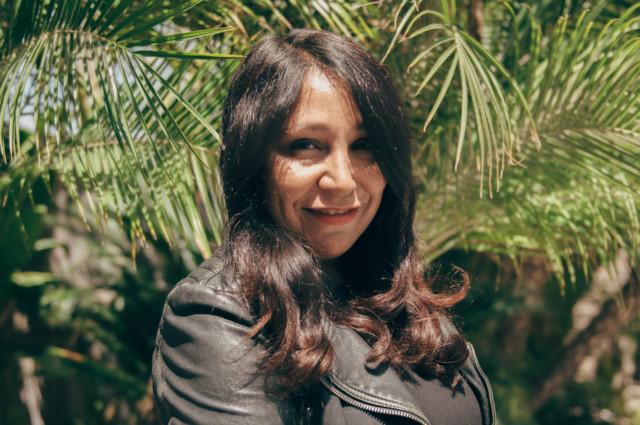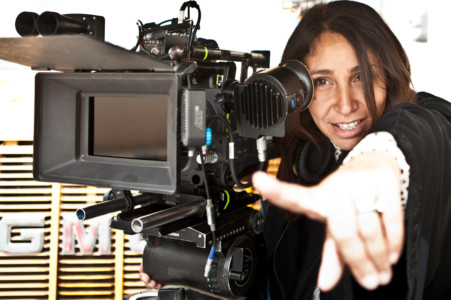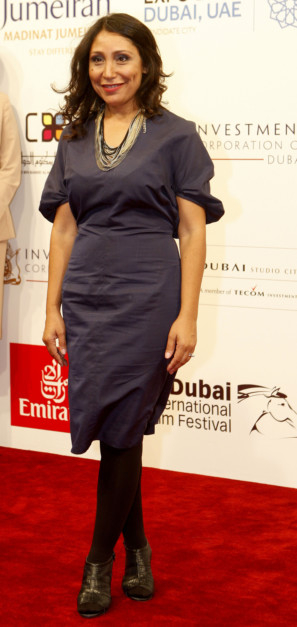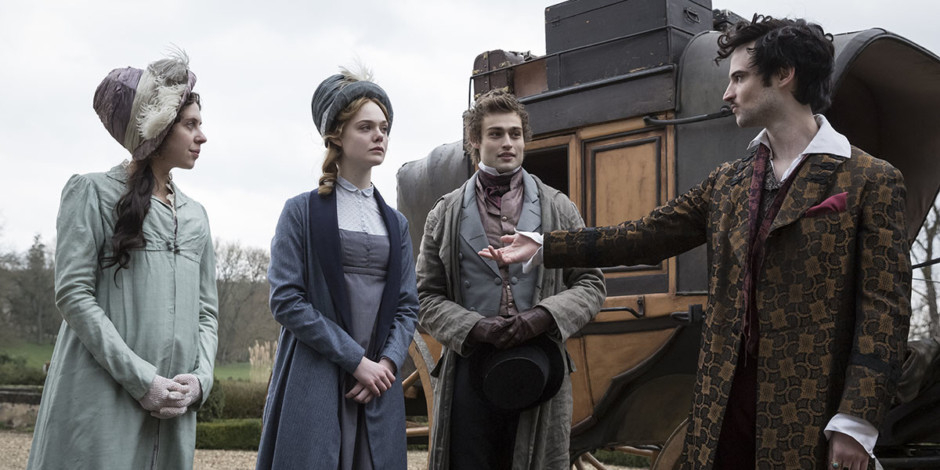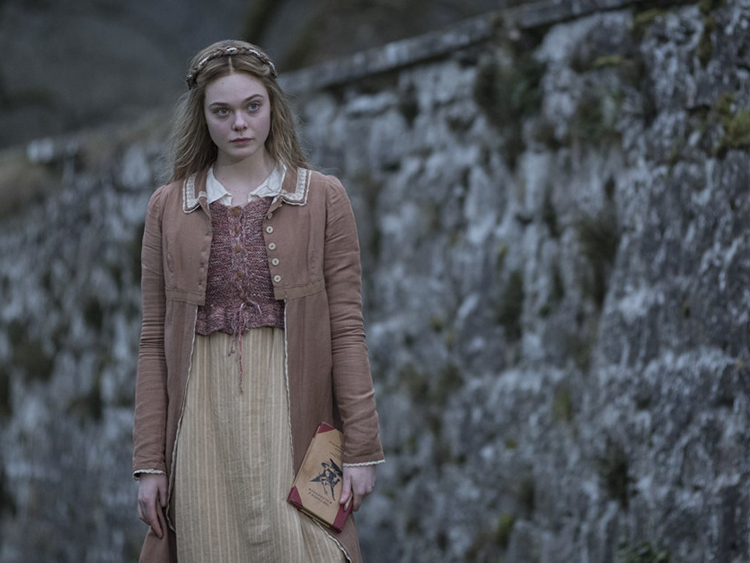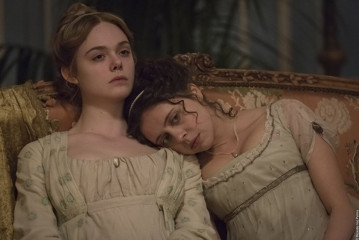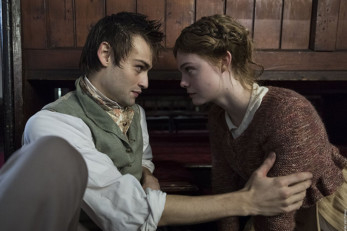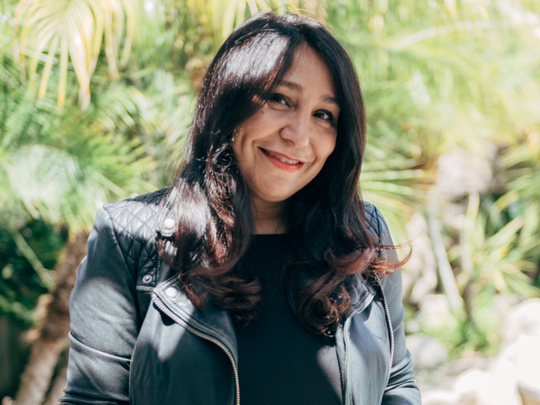
She’s all set to be the first female subject of National Geographic’s Genius, a series that showcases the great inventors of our time, from Einstein to Picasso.
But a lesser known slice of Mary Shelley’s life has already been told by Saudi Arabian filmmaker Haifaa Al Mansour in her English-language feature film debut, Mary Shelley, releasing on June 21 in the UAE.
The film, starring Elle Fanning and Douglas Booth, delves into the tumultuous love affair that 18-year-old Shelley — then Mary Wollstonecraft Godwin — had with poet Percy Shelley, eventually inspiring her to pen her monstrously popular novel, Frankenstein.
Al Mansour was initially hesitant to take on the script. The trailblazing director, whose 2014 film Wadjda made history as the first movie to be submitted by Saudi Arabia for the Best Language Film category at the Academy Awards, wasn’t sure she could relate to Shelley’s world.
“The producers sent me the script and I have to admit, I was sceptical at first. I thought her story would feel very foreign to me, as the period and the setting were so far from what I felt comfortable with. But when I read Mary Shelley’s story, I felt an instant connection with it,” said Al Mansour, speaking to Gulf News tabloid! in December as part of the Dubai International Film Festival, where the film had been screened.
Despite early reservations, Al Mansour was able to connect to Shelley’s conservative upbringing, “where women’s roles were much more rigid and opportunities were extremely limited.”
“She rose above it, and wrote a story that continues to capture the imagination of readers to this day. What I love is that she chose to write a book that was so outside of the ‘acceptable’ realms of literature for women, and created a genre [science fiction] that continues to be dominated by male voices,” said Al Mansour.
“She wrote a book that challenged religious doctrine and raised new ethical questions about the impact of uninhibited scientific experimentation would have on a society,” she added.
Shelley’s life and accomplishments inspired Al Mansour. As a contemporary filmmaker, she felt like she shared some of the same restrictions that the 19th century English novelist had come up against.
“The constraints of her world are so similar to the ones I faced as a woman coming of age in Saudi. I was really impressed by the unique way she approached feminism, like her mother Mary Wollstonecraft, in that they were not afraid to be both feminine and revolutionary,” said Al Mansour.
“They lived as rebels, but were also very feminine in their love lives, and not afraid to be soft or romantic at times. [They were able to] just be themselves and do what they wanted! I think it is important to keep that perspective as a woman, and not to be apologetic for going after the things you want in your life.”
Al Mansour, shortly before Saudi Arabia lifted a 35-year ban on cinemas, was optimistic about the future and growth of the Saudi film industry.
“It is a very exciting time to be a filmmaker in the region and the possibilities will only continue to grow. I hope to continue making as many movies as I can in Saudi Arabia. It is such a ripe environment for drama, and there are so many untold stories yet to be told. The interplay between tradition and modernity creates just the right amount of tension for great stories,” she said.
And with a Netflix film on the way (romantic comedy Nappily Ever After, starring Sanaa Lathan), the director is continuing to break boundaries and unlock wider audiences around the world.
“The main pressure I feel is to be true to myself and to continue making movies that represent my values. I am less concerned about being a pioneer and more concerned about laying the groundwork for future filmmakers from my country,” she said.
“My main motivation in making Wadjda was to make an inspiring film that was not about how women in Saudi Arabia are victims as much as how they can be leaders of change. That is still my goal as I continue to make movies about strong women around the world.”
——————————
Don’t miss it!
Mary Shelley is out in the UAE on June 21.



